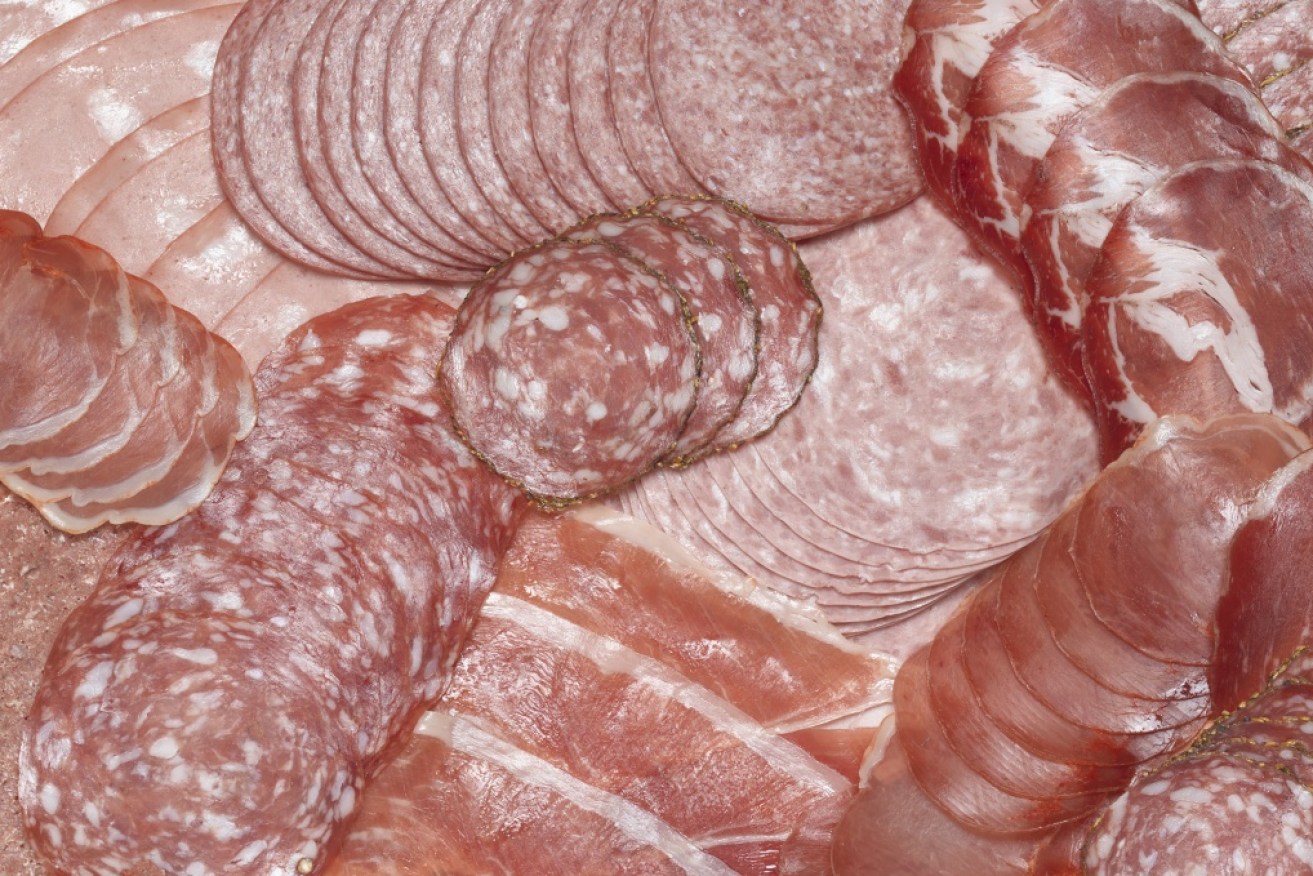These are the foods that put men at risk of developing colorectal cancer


So tasty. And not so good for your bowels and heart. Photo: Getty
Bowel cancer gets hold of more men than women. So why is that?
In Australia, the estimated number of colorectal cancer cases in 2020 is predicted to be 8300 males and 7413 females.
That roughly fits with Bowel Cancer Australia’s analysis that, on average, 54 per cent of cancer diagnoses are male, and 46 per cent are female.
The difference is partly explained by the fact that men smoke more cigarettes and drink more alcohol than women.
According to a new study, a significant driver of this difference between men and women developing bowel cancer could be sausages and bacon.
Ham and salami also to blame? But why?
Researchers from Tufts University began with an established fact: that ultra-processed foods, which have a range of devastating impacts on health, are a risk-factor for colorectal cancer.
These are highly popular ready-to-eat foods that are often packaged for long shelf lives, such as potato chips and other snacks, frozen meals like pasta dishes and pizzas, and deli meats containing preservatives such as ham and salami.

Australians get 42 per cent of their calories from ultra-processed foods. Photo: Getty
“Ultra-processed foods are also high in added sugars and low in fiber, which contribute to weight gain and obesity, and obesity is an established risk factor for colorectal cancer,” said Dr Lu Wang, the study’s lead author and a postdoctoral fellow at the Friedman School of Nutrition Science and Policy at Tufts.
Dr Wang and his team analysed the diet of 200,000 participants (159,907 women and 46,341 men) across three large prospective studies that were conducted over more than 25 years.
The participants were health workers, with two of the studies exclusively recruiting nurses.
The researchers sorted the participants into five groups, according to the amount of ultra-processed foods they regularly consumed, from lowest to highest.
Then they looked at who had developed bowel cancer. As expected, those who’d consumed the most ultra-processed foods were found to be most at risk.
But a weird quirk emerged
Overall, they found that men who consumed high rates of ultra-processed foods were at 29 per cent higher risk for developing colorectal cancer than men who consumed much smaller amounts.
Despite this clear link identified for men, particularly in cases of colorectal cancer in the distal colon, the study did not find an overall increased risk for women who consumed higher amounts of ultra-processed foods.
This was odd.
The researchers then looked at how men and women consume ultra-processed foods differently. The researchers suspected that processed meats and sausages might be the key.
Indeed, they found that the strongest association between colorectal cancer and ultra-processed foods among men came from meat, poultry, or fish-based, ready-to-eat products.
“These products include some processed meats like sausages, bacon, ham, and fish cakes. This is consistent with our hypothesis,” Dr Wang said.
Australia needs to change its eating habits
A 2019 study found that Australians, on average, get 42 per cent of their calories from these nutritionally poor and somewhat toxic foods.
As well as your bowels, ultra-processed foods are bad for your heart. But the damage doesn’t stop there.
As we reported in October last year, it only takes four weeks for a diet of highly processed food to inflame the brain and elicit behavioural signs of memory loss.
In December, we reported that if you’ve already suffered a heart attack, and continue eating too many ultra-processed foods, you’re at 66 per cent greater risk of having a second heart attack or stroke. And this one will likely kill you.
In July we reported that children aged three to five who eat more highly processed foods – such as chicken nuggets, frozen pizzas and sugary breakfast cereals – have poorer locomotor skills than children who eat less of these poor-quality foods.
Locomotor skills include walking, running, jumping, hopping, crawling, marching, climbing, galloping, sliding, leaping and skipping.
The implication here was that kids with poorer motor skills are likely to end up fat and unhealthy.
How to escape these foods? Swap them for more whole grains, lean cuts of meat (modest amounts), more fish, nuts, beans and legumes (which are much cheaper than meat and a good substitute), fruits and fresh vegetables.








